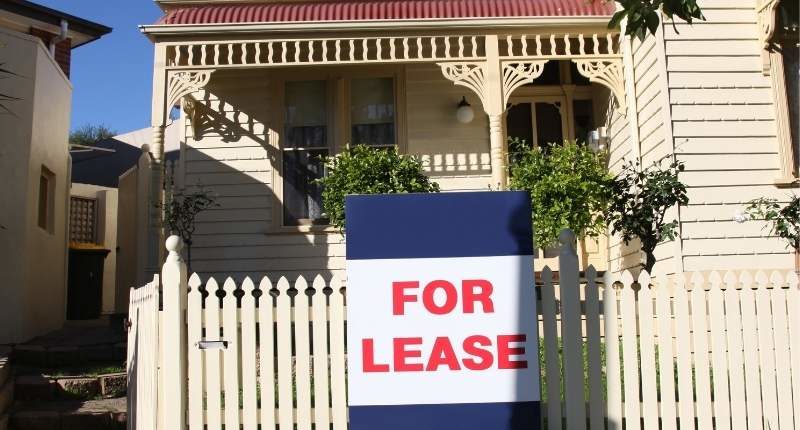- 45.1% of property investors have sold at least one property in the state during the two years to August 2022
- 19% of investors said they plan to sell property during the next year
- Queensland's land tax the biggest motivator
Almost 30% of rental dwellings have disappeared from the Queensland market in just two years, the Property Investment Professionals of Australia (PIPA) Annual Investor Sentiment Survey has found.
The survey has found that 45.1% of property investors have sold at least one property in the state during the two years to August 2022.
While more than 160,000 of these investment properties were potentially sold to owner occupiers – arguably a good thing – this has resulted in a sharp decline of rental stock.
Independent analysis of PIPA’s data found that nearly two-thirds (65%) of all investment dwellings were bought by owner-occupiers during this period, meaning rental stock in Queensland has fallen by 29%, or around 162,000 dwellings, in just two years.
19% of investors nationally have indicated they intend to sell more property over the year ahead. In Queensland, this is due to a controversial new land tax that will impact of investors’ portfolios not just in Queensland, but assets held in other states and territories.
PIPA Chair and The Property Tribune contributor Nicola McDougall said the sell-off is a clear sign that investors are fed up with ever-changing legislation impacting the rental market.
“From Coolangatta to Cairns, investors have deserted the Queensland market over the past two years, with more rental pain on the horizon as well,” Ms McDougall said.
“We had an inkling that investors had been selling their holdings over the past year or two, but these results show that even we had under-estimated the volume of rental properties that have been jettisoned from the market.
“The fact that 45.1% of investors sold at least one property in Queensland is mindblowing – especially since this was mostly a period when the ridiculous new land wasn’t even law.”
Ms McDougall added that the number one reason why investment properties were sold were due to the positive selling conditions at the time, followed by being able to reduce their total borrowings and changing legislation making it too costly or hard to manage rental properties.
“These investor insights help to explain why so many investors – myself included – sold in Queensland because property prices were mostly stagnant there for years before the pandemic because of its underwhelming economy,“ she said.
“So, after the moratoriums on rental evictions ended, and prices started to rise, investors offloaded their properties in the hundreds of thousands.

“That said, even with the strong market conditions last year, after all the costs including Capital Gains Tax that I paid over the 15 years I owned a property in a Brisbane middle-ring suburb, I would have been better off financially driving an Uber in my spare time.”
The survey noted that 45.1% of investors sold a property or properties in Queensland – the number one location by far – with New South Wales and Victoria following with 24.1% and 19.1% respectively.
National
SQM Research data shows just how much the Queensland rental market has declined during the past two years.
More pain for renters to come
Given that almost a fifth of investors are planning to sell during the next 12 months – in spite of falling house prices – the rental market is expected to deplete by another 200,000 properties.
Ms McDougall reiterated that the number one reason why investors may sell their property over the year is due to the Queensland tax.
“The survey provided investors with more than a dozen potential reasons why they may sell a property in the next year – and the Queensland land tax was the top reason with nearly 31% of investors,” she said.
“Investors are also feeling like they have lost control of their real estate assets, because 29% are considering selling a property because of changing tenancy legislation making it too costly or hard to manage, followed by the threat of losing control of their asset because of new or potential government legislation (27.5%), and the threat of rental freezes being enforced by governments (23%).
“If the percentage of investors who are considering selling winds up doing so, then we are going to see even higher rents as well as a sharp increase in homelessness – especially in Queensland.”
Only 58% of investors believe it is now a good time to invest in residential property, down from 62% in 2021 and 67% in 2020, according to the survey.
Ms McDougall concluded her remarks by noting that IPA had been warning governments about the potential rental undersupply for the past five years.
“When we warned about the potential impact from lending restrictions on rental supply back in 2017, no one took any notice, and when we started highlighting the looming rental undersupply some two years ago, again, we were ignored as real estate zealots,” she said.
“It is clear that investors are sick and tired of being treated appallingly by policymakers who continually believe that they are an endless supply of revenue for their coffers.
“But when nearly 270,000 rental dwellings disappear in just two years – because governments thought private investors would forever shoulder the burden of providing rental housing while being taxed and taxed some more – well, have we got news for you.”








